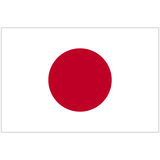
Stats show up style clashes in Rugby World Cup quarterfinals
Statistics compiled over the course of the group stage at the Rugby World Cup may offer an insight into the nature of the match-ups which will occur in the weekend quarterfinals.
While the styles of each of the quarterfinalists are relatively well known, the pool phase data can be mined for deeper insights into the strengths and weaknesses of the various teams in Oita and Tokyo.
There are several obvious bullet points ahead of matches between England and Australia, New Zealand and Ireland, Wales and France and Japan and South Africa.
Defending champion New Zealand leads the way in most of the main attacking statistics; it has gained more meters, made more clean breaks, beaten more defenders and provided more offloads than any other team. Those factors may be tempered by the fact that with the cancellation of their last pool match, two of their three games where high-scoring and against Tier Two nations.
The All Blacks also have a 100% success record at scrums, the best of the tournament, though they haven't been tested by a scrum of Ireland's quality and experience.
In contrast, Australia is ranked 15th among the 20 teams which started the tournament on the basis of scrum success rate, well behind the much more accomplished England scrum.
Ireland has the best defensive record of the eight quarterfinalists, conceding only two tries in four pool games and missing fewer tackles than any other team.
Those figures point to one of the two glaring clashes of styles in the quarterfinals. On the basis of its pool performances Ireland will rely on its forwards as principal ball carriers, will attempt to command field position and will box kick, most likely toward the right flank where All Blacks winger Sevu Reece can expect to be tested.
Ireland and South Africa have kicked out of hand more often than most of the other quarterfinalists and that sets up a tactic and stylistic clash with New Zealand and Japan which attack more with ball in hand.
Japan can also be expected to be tested by a barrage of high kicks from the Springboks, mostly out of scrumhalf. But Japan has prepared for that; coach Jamie Joseph calculated that if Japan made it into the knockout rounds for the first time there would be at least some chance of facing South Africa in the quarterfinals.
Japan played South Africa in a warm-up two weeks before the World Cup and lost 41-7 but it used the match to test its high ball skills and its response to a kicking barrage. The lessons learned in that match came in handy when Japan encountered those tactics against Ireland in pool play, beating a team recently ranked No. 1 in the world.
Japan will likely join the All Blacks in playing the most adventurous style among the quarterfinalists, but that is not to underestimate the soundness of its forward play. It is tempo, almost frenetic, that serves Japan so well against more conservative or structured opposition.
Japan also finishes as well as any team when opportunities are created. Winger Kotaro Matsushima is the joint top try-scorer in the tournament with five, has made the second-most line breaks and the fourth most runs. At the same time, flyhalf Yu Tamura is the top scorer in the World Cup so far with 48 points, including 10 penalties.
A question mark hangs over Japan's defense; it conceded 62 points in pool matches, almost twice as many as South Africa with 36.
The Springboks also scored more points than any other team — 185 — and more tries, 27. But they were only fifth overall on the list of overall carries with 484 meters, well short of the leaders in that category, Australia, with 627. That can be interpreted as showing the Springboks advanced with kicks as often as they did with ball in hand and attacked from shorter range.
But the Springboks were also high on the list of overall line breaks with 63, behind only New Zealand with 71.
Goalkicking is frequently a decisive factor in World Cup knockout matches. That may come as a solace to New Zealand, which has the best success rate with 84%, and Wales, just behind with 83.
Wales, which plays France in the quarterfinals, has three reliable kickers — Dan Biggar, Leigh Halfpenny and Rhys Patchell — but has missed more tackles than any other team in the quarterfinals and ranks high on the list of handling errors.
Wales winger Josh Adams matched Matsushima with five tries and led all players with 13 clean breaks, while captain Alun Wyn Jones was his team's most industrious defender with 47 tackles.
Discipline will likely be crucial from here on with seven red cards and 25 yellow cards dished out so far in the tournament. Australia has received more yellow cards than any of the eight remaining teams, and France has conceded most penalties.
